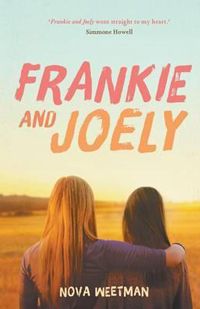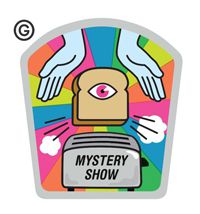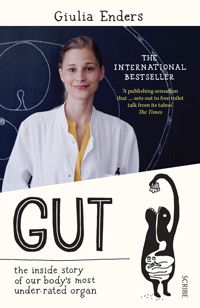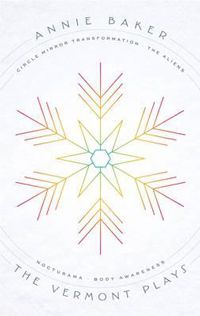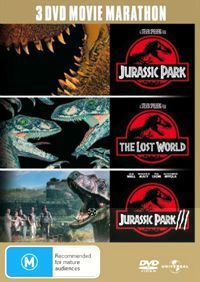Each week we bring you a sample of the books we’re reading, the films we’re watching, the television shows we’re hooked on or the music we’re loving.
Emily Gale is reading Frankie and Joely by Nova Weetman
One of the things that has struck me while observing my children develop is how good they are at making, and keeping, friends. They did not get this from me. I always found friendship tricky to navigate, especially in my early-to-mid teens, and allowed several to slip through my fingers. Perhaps that’s why Melbourne writer Nova Weetman’s second novel, Frankie and Joely, resonated strongly with me. This is the story of two friends who love each other dearly but wilfully misunderstand each other. They spend one school holiday on a farm owned by Joely’s aunt and uncle, and the experience of Frankie being out of her comfort zone and Joely sharing her comfort zone with someone she adores and envies, brings simmering issues to the boil. I identified with Joely the most, and as a result found her the most frustrating of the two, but took her back into my heart when she became horribly sunburnt and – bedridden, stiff with pain - had to watch her olive-skinned friend flounce about the place: the story of my Factor-50 life. Frankie, meanwhile, exerts her power over the opposite sex because she has no idea how to ask for love any other way.
Frankie and Joely is told from both perspectives and a couple more besides (this is slightly confusing at first but bear with it, it makes absolute sense after a while) which generates the feeling of a page-turner even though the plot itself is fairly simple. In fact, because I was on a deadline to review this book for the Readings Monthly, I had to read the entire manuscript on my phone – so when I tell you it’s a page-turner what I mean is that I was so keen for the story that I swiped the screen about a thousand times!
Alan Vaarwerk is listening to The Mystery Show podcast
I’m loving this new podcast from the producers of Reply All (another of my current favourites), in which host Starlee Kine solves small-scale mysteries – the kind that a simple web search can’t solve. My favourite episode so far involves an author who is shocked to see a paparazzi photo of Britney Spears holding her largely unloved second novel. Kine is recruited to find out how Britney got the book and what she thought of it. As the investigation unfolds, Kine reflects on paparazzi, celebrity and book culture, and paints a deeply humanising (quite sad) portrait of the mega-celebrity.
Kine is charming and her narration full of warmth and clarity. I love the tangents she follows, stopping to tell the stories of those who help her on her quests. The Mystery Show is probably the podcast I’ve most wanted to discuss with people since Serial, as several in the Readings office can attest!
Elke Power is reading Gut: the Inside Story of Our Body’s Most Under-Rated Organ by Giulia Enders
Late last year I discovered that my colleague Nina and another always-ahead-of-things friend, Emma, were both reading Marie Kondo’s tidying manifesto, The Life-Changing Magic of Tidying. Recently, Emma came back from overseas and picked up where she had left off with KonMari-ing her home. I was swept up in the excitement again and suddenly found that I couldn’t wait a moment longer to read it myself. I won’t go into the details of what you’ll find in the book because Nina has written about it so perfectly (and hilariously) here, but I will say that the most surprising part of the experience for me was that while I was fascinated by the idea of a book about tidying, and that the book is by someone who has dedicated her life to tidying, I never expected to find The Life-Changing Magic of Tidying enjoyable or uplifting. It is both, and a reassuring, practical (for the most part) guide as well. I have yet to implement the KonMari Method, and I may have had too many coffees, but for the last fortnight I have been feeling alarmingly optimistic about my tidying future.
Also on the subject of order and chaos within and without, I’ve just finished reading Gut: The Inside Story of Our Body’s Most Under-Rated Organ by Giulia Enders (and illustrated by her sister, Jill Enders). Again, not a title or a topic that would usually capture the imagination, but here again I was surprised. However, I was not surprised that this book is brought to us by Scribe Publications, the Melbourne publishing house that delivered Norman Doidge and The Brain That Changes Itself. Anyone who enjoyed that bestseller will find much to appreciate in Gut. The Times has called it a ‘publishing sensation’, and with Enders’ pitch-perfect approach it looks set to cause a shift in how we all conceptualise health and understand the relationships between the various enigmatic systems in our bodies. In the same way that, prior to Doidge’s book, neuroplasticity was not something about which most people were aware, two key areas addressed in Gut are likely to be on the public mind in years to come: the brain–gut link and its ramifications for mental as well as physical health; and the urgency of us all updating our understanding of the purpose and value of ‘good bacteria’ and bacteria balance.
Gut is a shorter book than The Brain, so it’s the perfect introduction to popular health science if you haven’t gone down that path before, but it is also satisfying for regular readers of the genre – and their bacteria.
Stella Charls is reading the plays of Annie Baker
A few weeks ago I was lucky to score a seat in the audience for Red Stitch’s sold-out production of The Flick. This production of Annie Baker’s latest play, staged last year in association with the Melbourne International Film Festival, received such incredible acclaim that Red Stitch brought it back this May for another run. I hung around in the foyer of the tiny theatre for over an hour on the waiting list, fingers crossed that someone wouldn’t turn up so that I could see what all the fuss was about. Luckily for me, the waiting game paid off. And just like that I fell hard and fast for the work of American playwright Annie Baker.
Since the production I’ve read through the script of The Flick (which won the 2014 Pulitzer Prize for Drama) and her collection, The Vermont Plays. Her style of theatre is as un-theatrical as possible. It draws on the immediacy of the overheard conversation (seventeen-year-old Baker used to surreptitiously tape-record people’s conversations in an effort to understand how they really spoke), but seems to explore what is left unsaid around the edges of these conversations. In an interview, Annie Baker once said she believes that, ‘every single person on this planet is a genius and an idiot’, and that, ‘any given person you walk by on the street could be brilliant and also deluded and insane’. She makes a pretty solid point, one that definitely seems to pinpoint why her characters are such refreshing fun to read.
Chris Somerville is watching the Jurassic Park trilogy
Before you go see Jurassic World it’s worth revisiting these movies. The first one is, we can all agree, a masterpiece. The film still looks incredible in this day and/or age, and makes you feel like an 11-year-old again. It’s worth checking in on The Lost World, which features Vince Vaughn as some kind of activist and Jeff Goldblum as an un-magnetic leading man. He doesn’t want to be there so much you can almost feel him vanishing off the screen, like a ghost.
Not to be deterred, the filmmakers also made Jurassic Park III, this time with Sam Neil reminding us why he’s such a great lead. Even when he 3D-prints the vocal chords of a velociraptor, and later blows on it like a trumpet to communicate with other velociraptors. William H Macy is also in the third film, as a man who owns a tile business but pretends to be a millionaire somehow.


